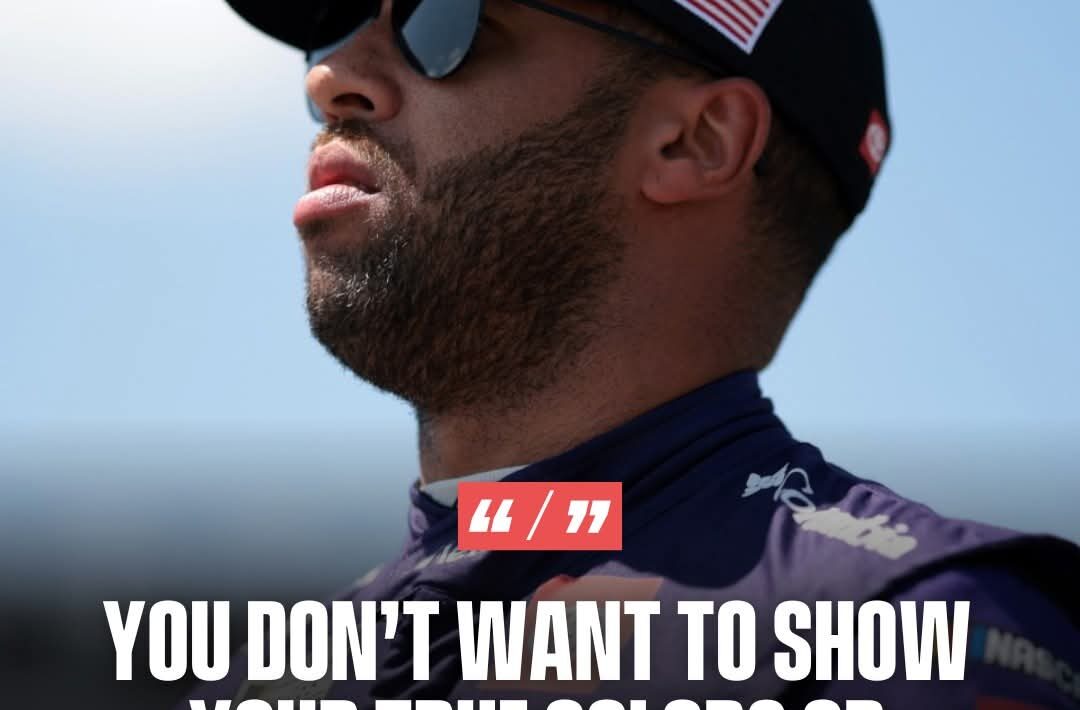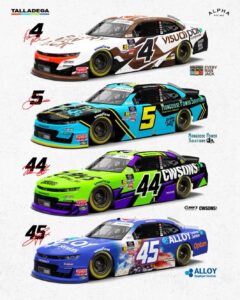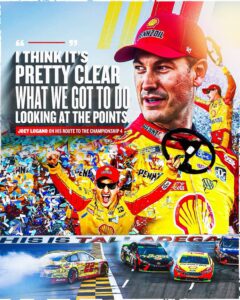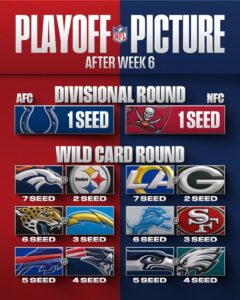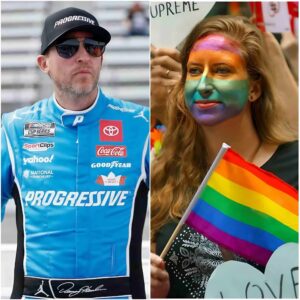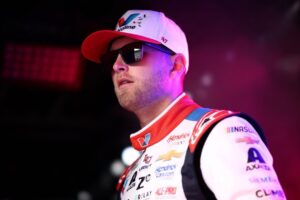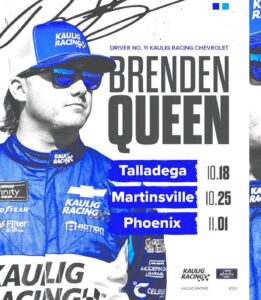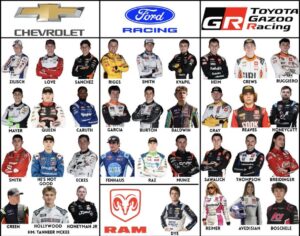In a candid conversation about his journey in NASCAR, Bubba Wallace, one of the sport’s few prominent Black drivers, has opened up about the struggles he’s faced when it comes to securing sponsorship deals. His experience mirrors a narrative that has been all too familiar in the world of sports, especially for athletes of color, one that has also been widely discussed by tennis icon Serena Williams throughout her illustrious career.
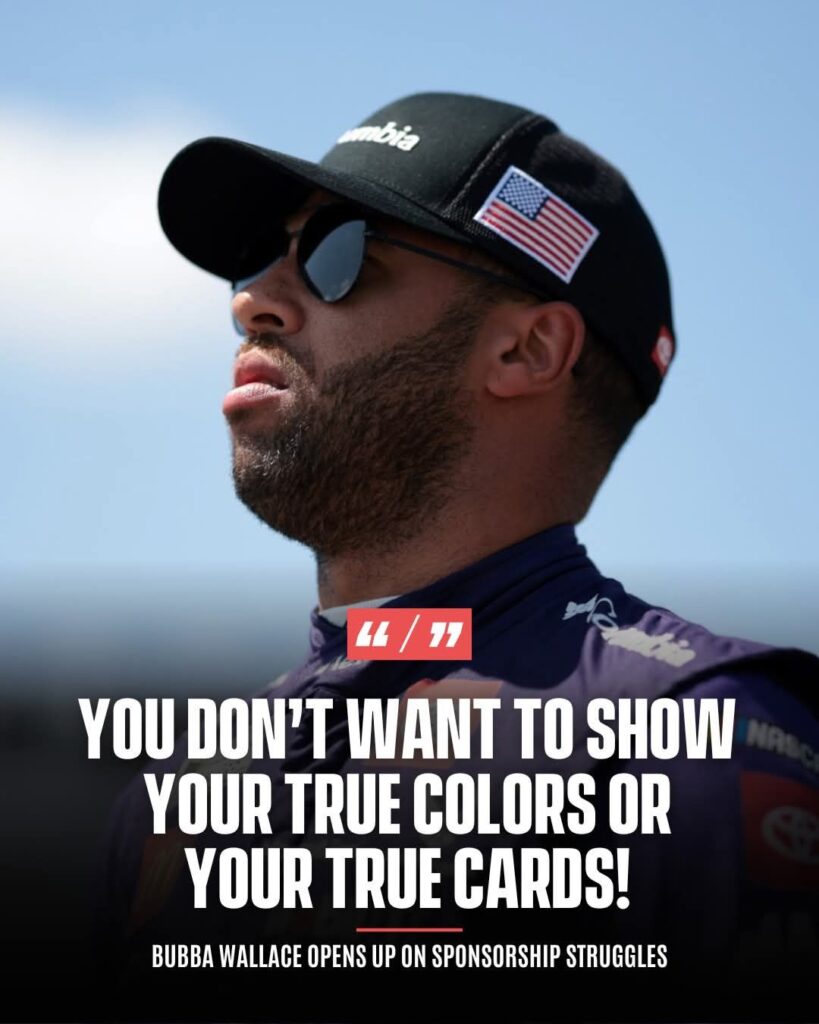
The Challenge of Securing Sponsorship
Bubba Wallace’s rise to prominence in NASCAR has been nothing short of groundbreaking. As the first full-time Black driver in the NASCAR Cup Series in over 50 years, Wallace has broken barriers, gaining recognition not only for his racing skills but also for his activism, especially in advocating for racial equality within the sport. However, despite his success on the track and his ability to generate substantial media attention, Wallace has faced significant challenges when it comes to securing long-term sponsorships.
In a recent interview, Wallace shared how the difficulty of attracting major brands has often felt like a barrier to his success, one that goes beyond performance and into the very fabric of the business side of racing. He explained that sponsors often shied away from aligning themselves with him due to his outspoken views on social issues and his advocacy for racial justice. Wallace admitted that many brands, fearing backlash from a predominantly conservative fanbase, were hesitant to put their name on his car.
“There’s a fear of showing your true colors, especially when you stand for something,” Wallace explained. “Sponsors want to keep things clean, but in reality, it’s harder to grow if you’re not willing to take risks and make a stand for what you believe in.”
Parallels to Serena Williams’ Struggles
Bubba Wallace’s sponsorship challenges are eerily reminiscent of the hurdles faced by Serena Williams in her career. Williams, a 23-time Grand Slam champion, has long been a target of sponsorship struggles despite her unparalleled success in tennis. As a Black woman in a predominantly white sport, Williams has often been vocal about the difficulties she faced in securing endorsement deals, particularly with mainstream brands.
In interviews throughout her career, Williams discussed how sponsors were hesitant to partner with her, in part due to her unapologetic confidence and outspokenness on issues related to race, gender, and social justice. Despite being one of the most dominant athletes in the world, Williams had to fight against a narrative that undermined her success by focusing on her identity and image rather than her accomplishments.
The lack of support from sponsors is not just a financial issue for athletes like Wallace and Williams. It also serves as a subtle reminder of the barriers that still exist in sports, where representation and visibility continue to be a challenge for athletes of color. For both Wallace and Williams, their advocacy work has often placed them in the crosshairs of a system that values conformity over authenticity.
Breaking Through the Barriers
Despite these challenges, both Wallace and Williams have managed to break through the barriers of sponsorship struggles in their own unique ways. Wallace, for instance, has secured key partnerships with brands that support his values, including NASCAR’s push toward diversity and inclusion. He also gained widespread recognition after his involvement in the push to ban the Confederate flag from NASCAR events—a move that further cemented his role as a leader within the sport.
Similarly, Williams has created her own path by aligning herself with brands that truly align with her values. She became an advocate for gender equality, using her platform to elevate the conversation about equal pay and opportunity for women in sports. Williams has also invested in ventures that go beyond tennis, further showcasing her ability to transcend the limitations often imposed by traditional sponsorship deals.
For both Wallace and Williams, the power of social media and their platforms has been instrumental in shifting the narrative. They have used their voices to amplify issues that matter to them, showing that their influence reaches far beyond the racetrack or tennis court.
Looking Ahead: A New Era of Representation
As Bubba Wallace continues to push forward in his NASCAR career, he remains hopeful that his struggles with sponsorship will inspire change within the sport. He’s optimistic that more brands will begin to recognize the value of supporting athletes who are committed to creating positive change and using their platform to amplify voices that have long been marginalized.
In a similar vein, Serena Williams’ impact on the world of sports sponsorship has set a powerful precedent for future generations of athletes. By embracing their authenticity and standing firm in their beliefs, athletes like Wallace and Williams are creating a more inclusive and diverse future in sports.
As more athletes of color break through the traditional barriers and secure meaningful sponsorship deals, it’s clear that the landscape is changing. The hope is that one day, the color of an athlete’s skin, their political views, or their social stances will no longer be factors in determining their financial success—only their performance, passion, and the value they bring to the sport.
In the end, the struggles that Wallace and Williams have faced are emblematic of the broader conversation about race and representation in sports. While progress has been made, their stories serve as a reminder that true equality in sports sponsorships is still a work in progress, and one that requires both brands and athletes to be willing to take risks and stand by their convictions.
